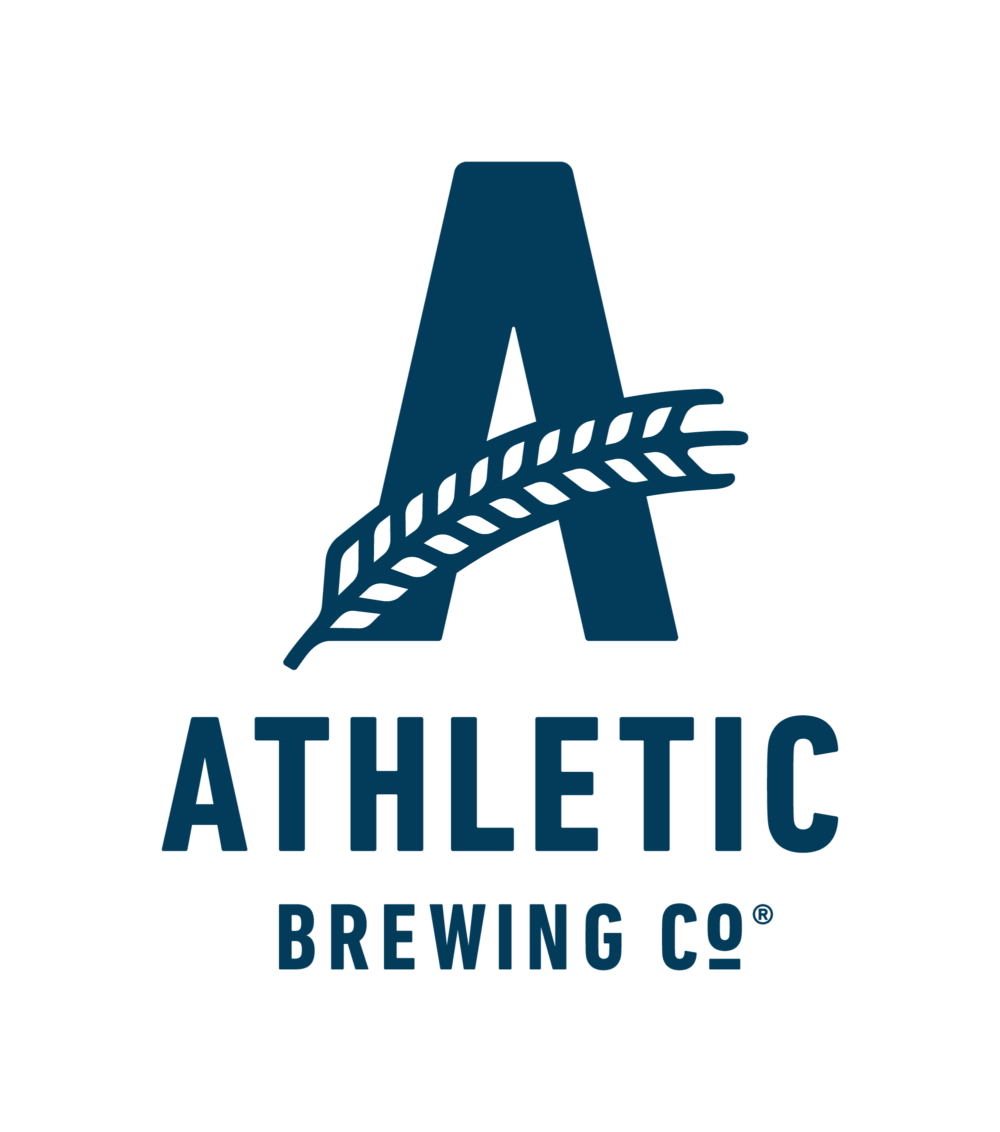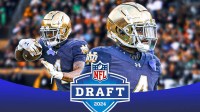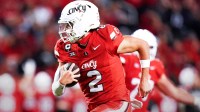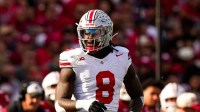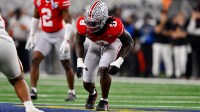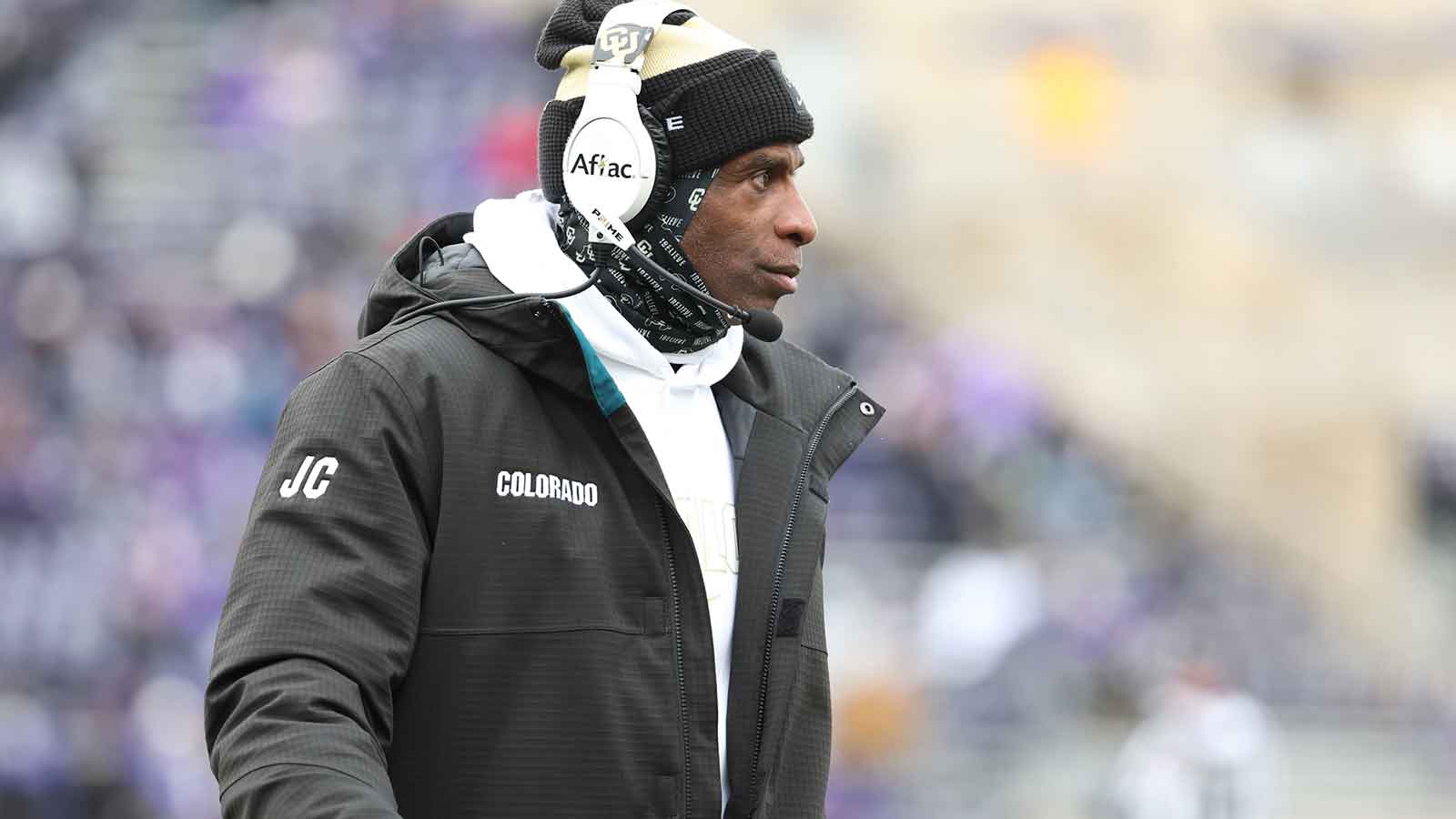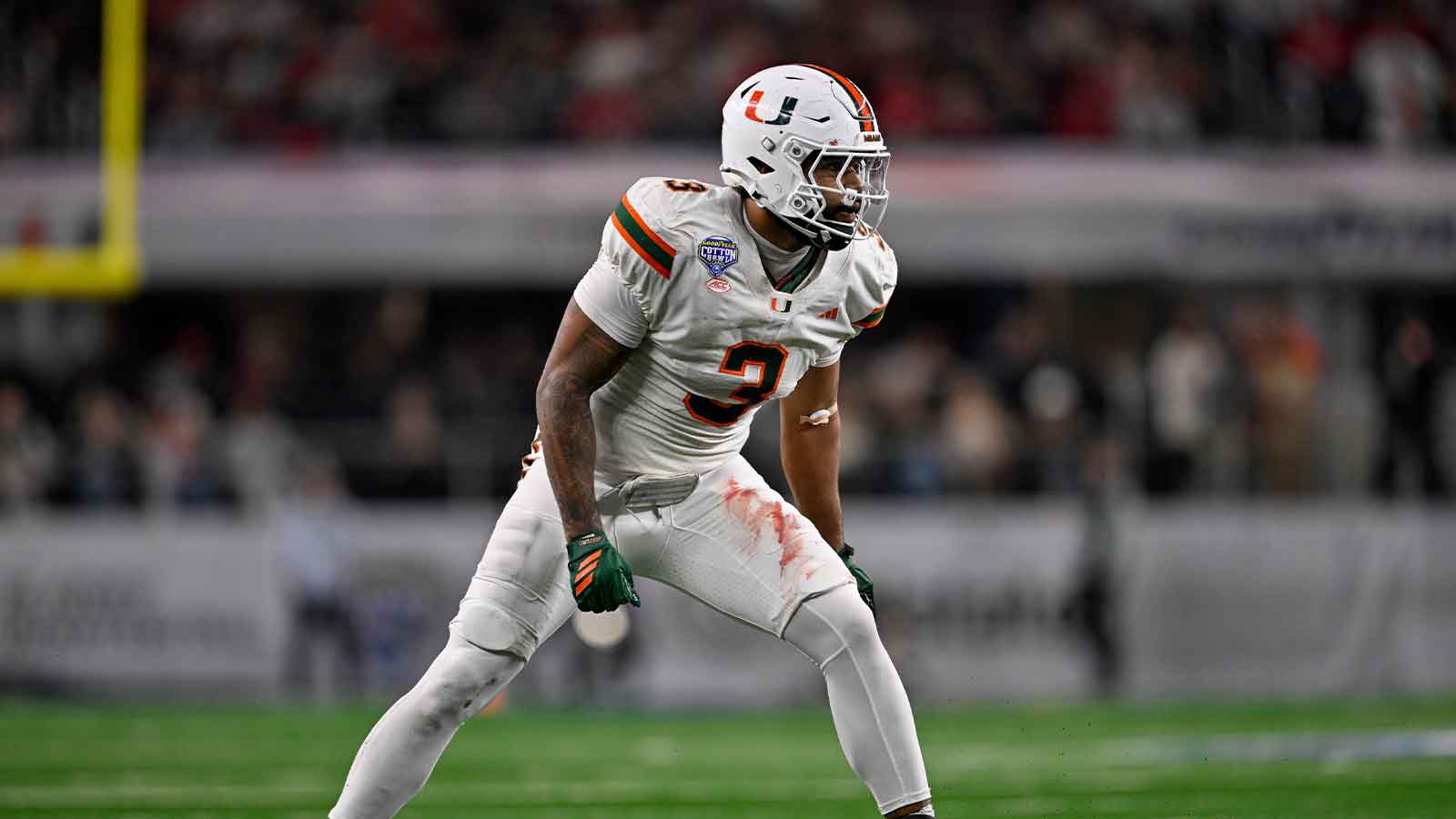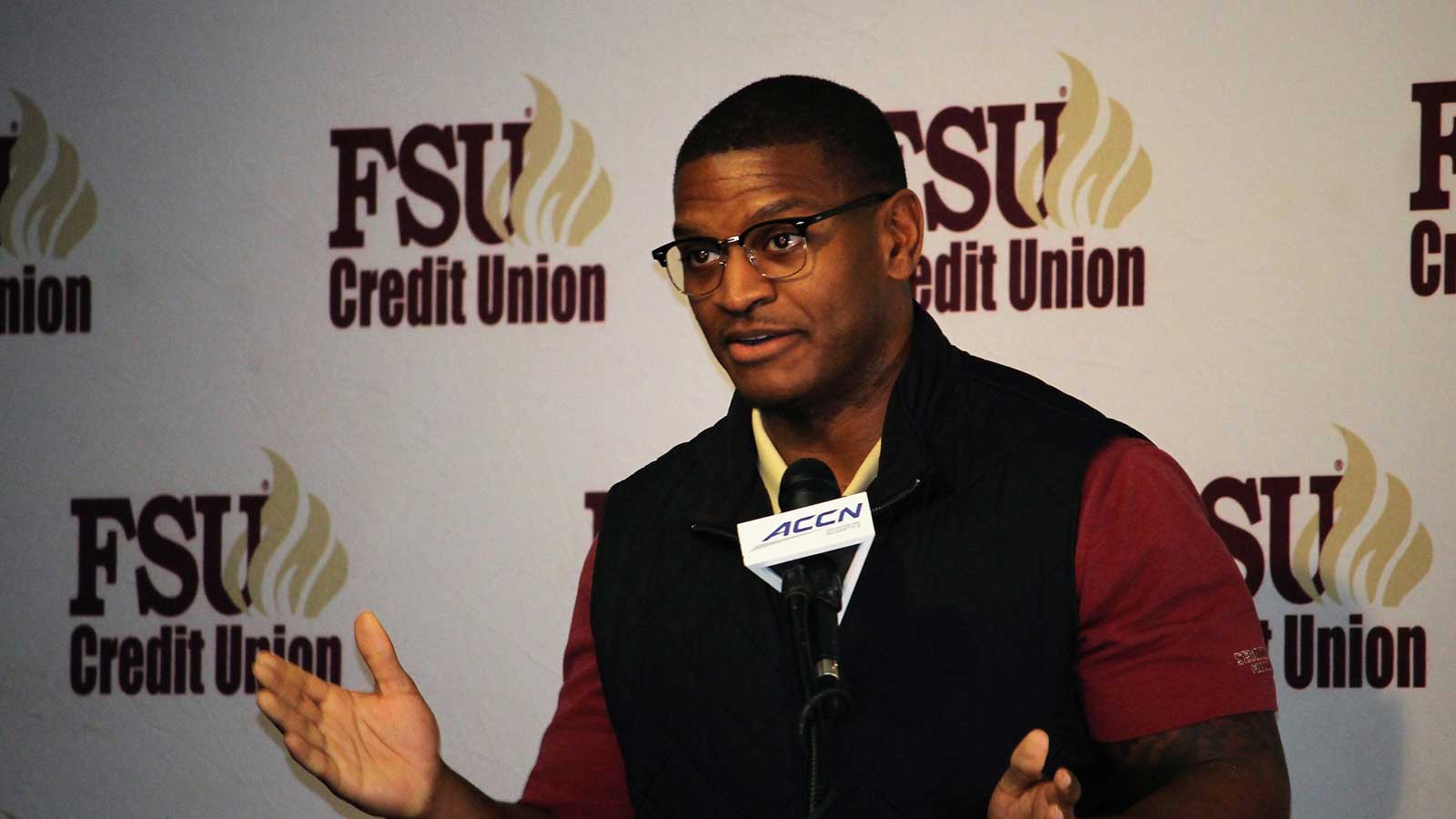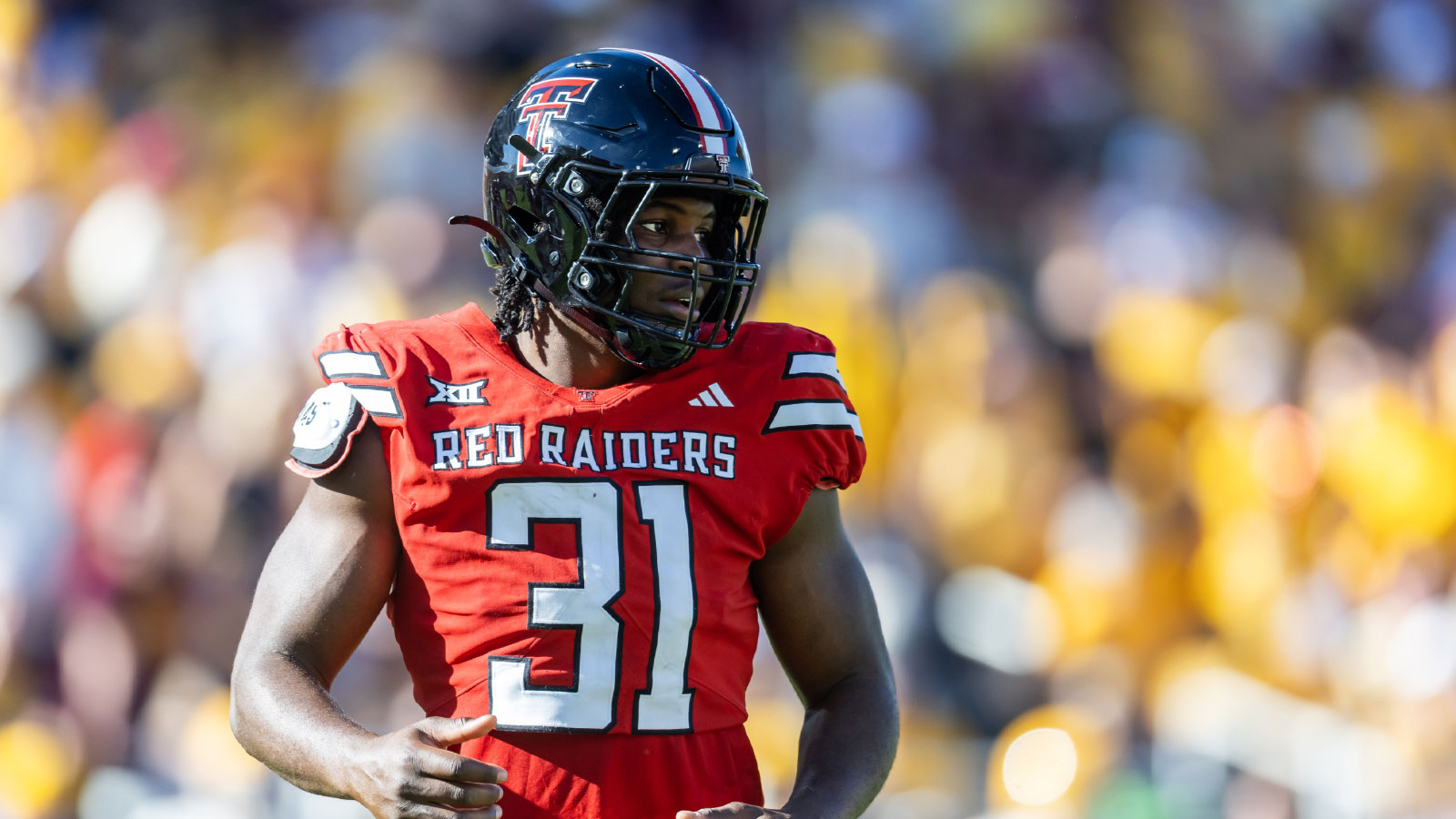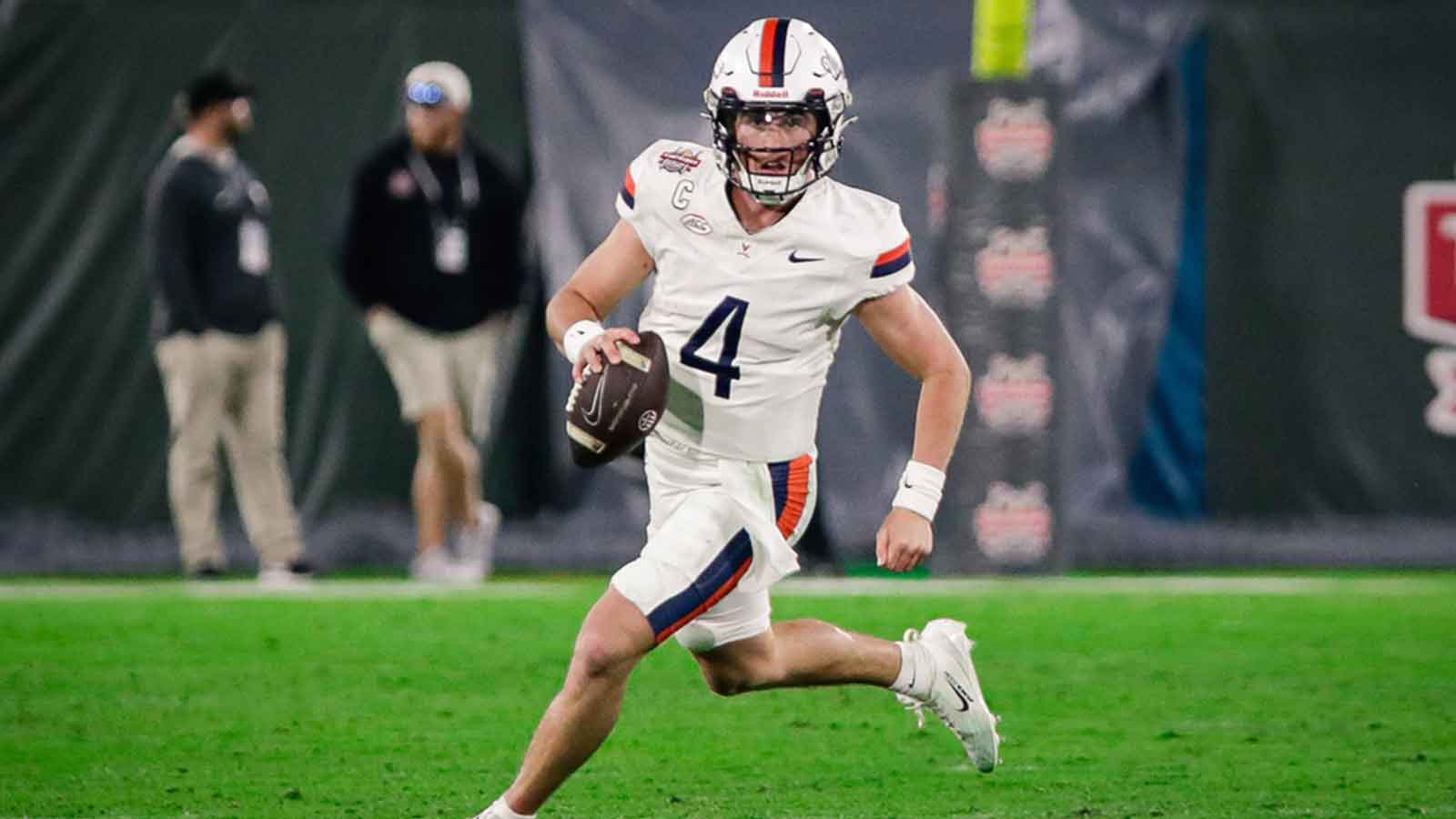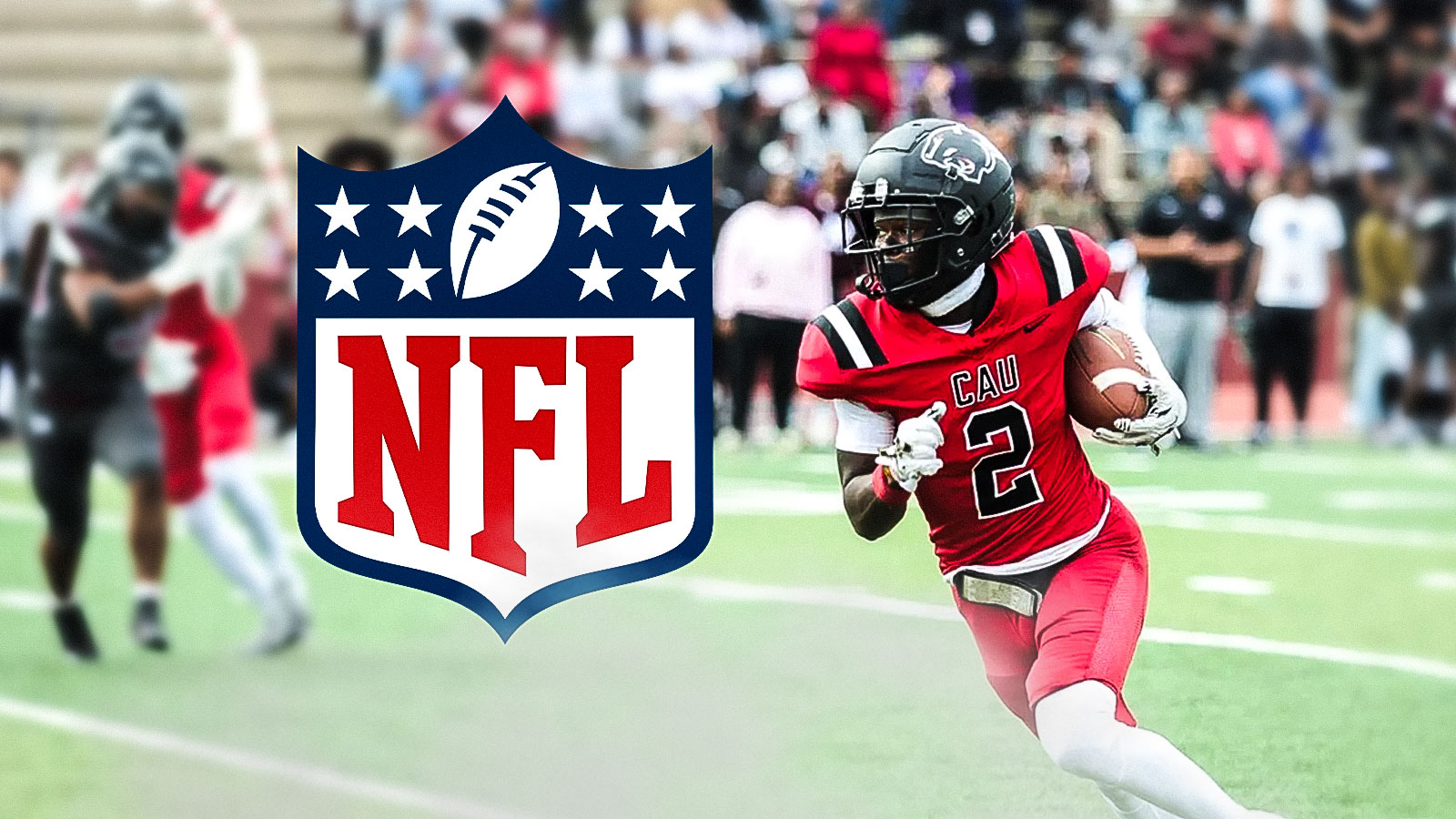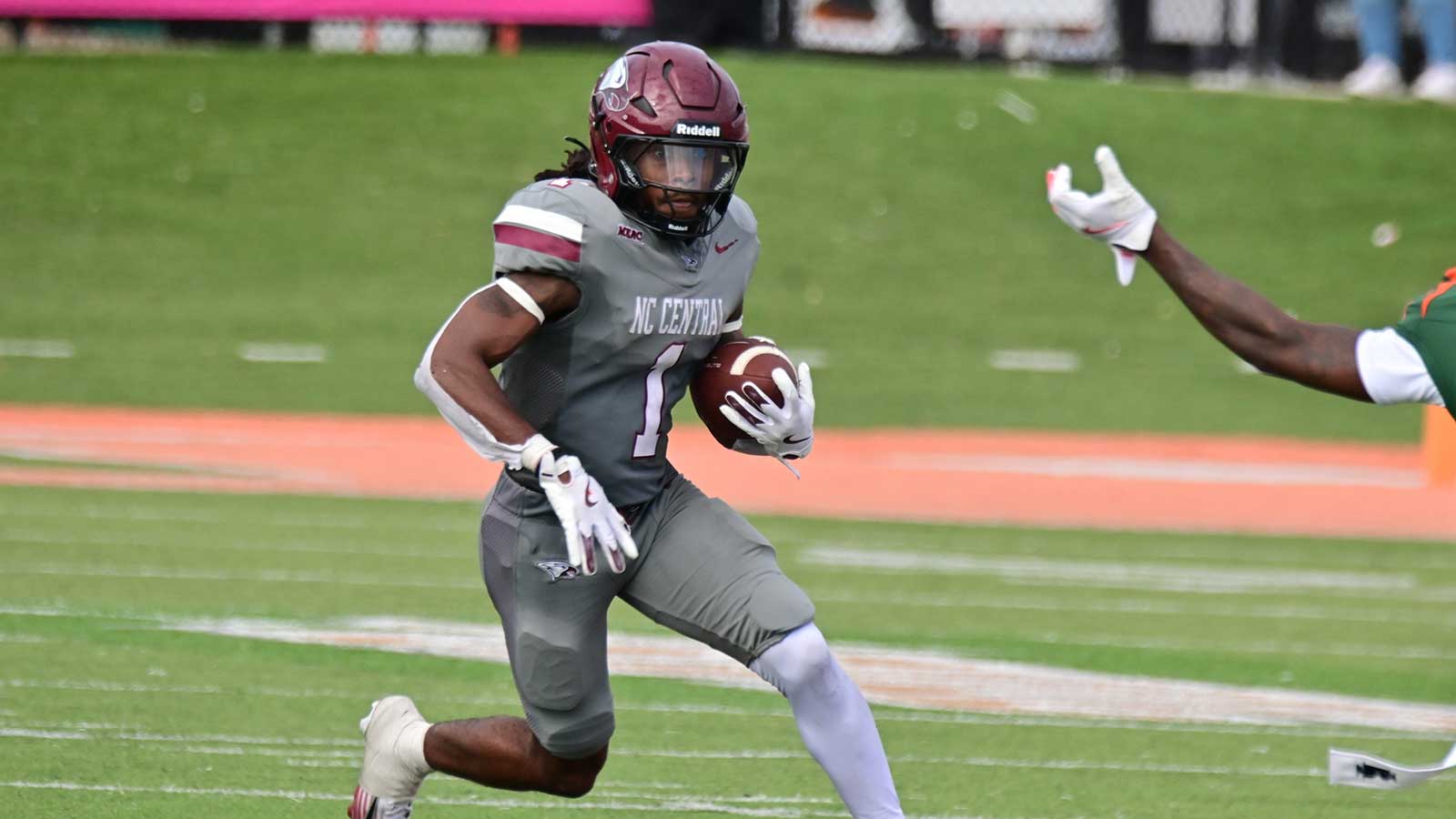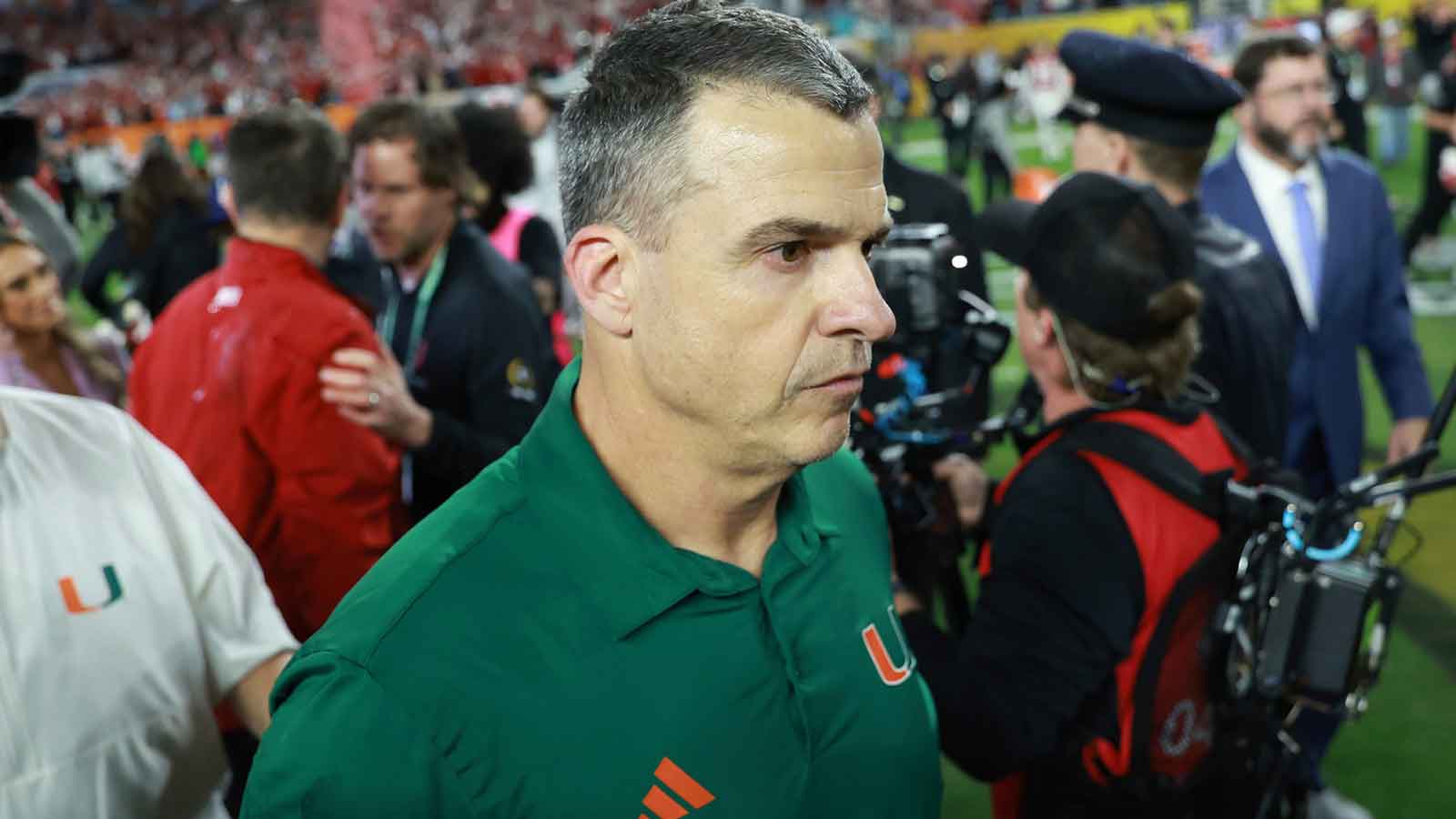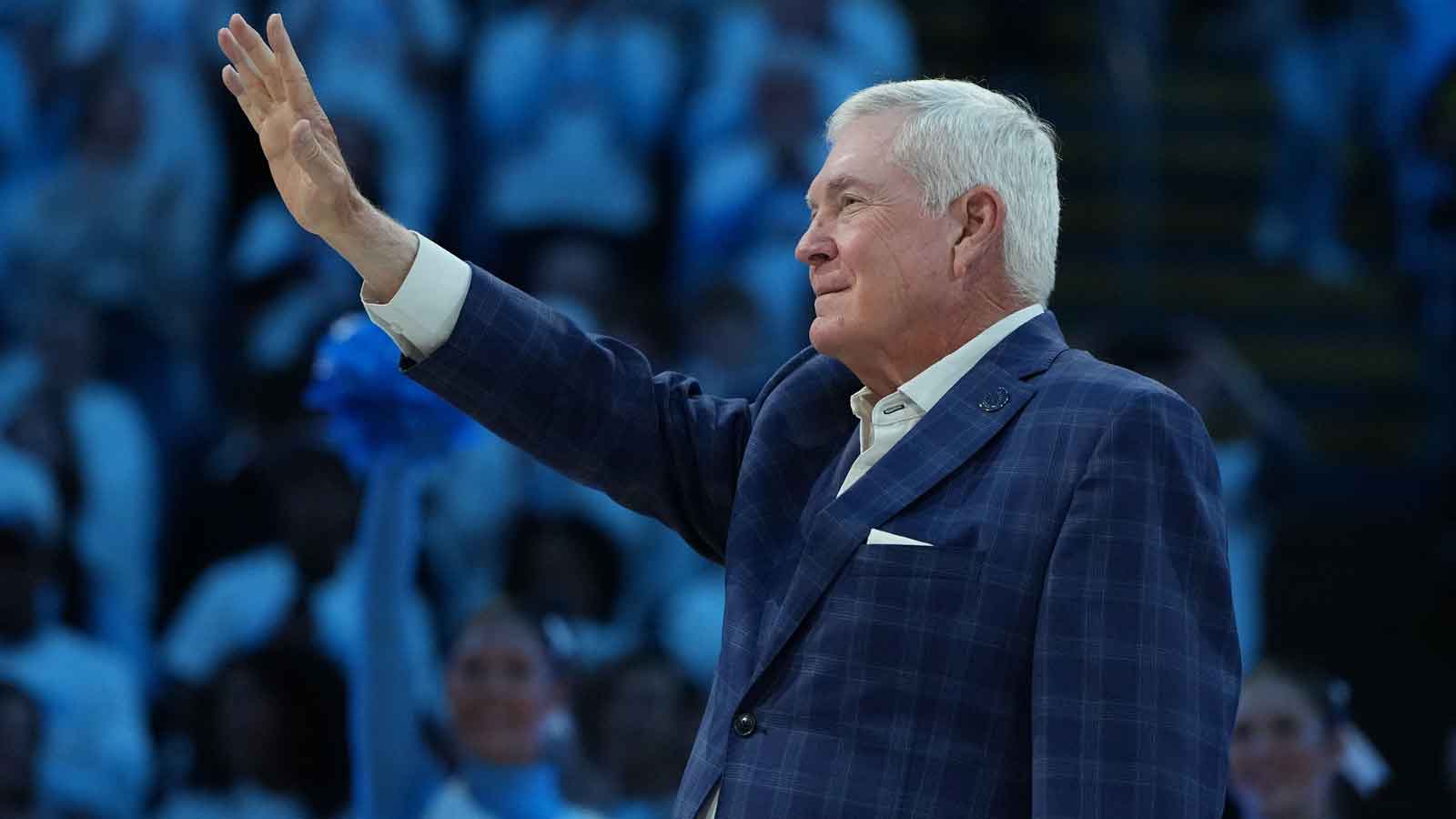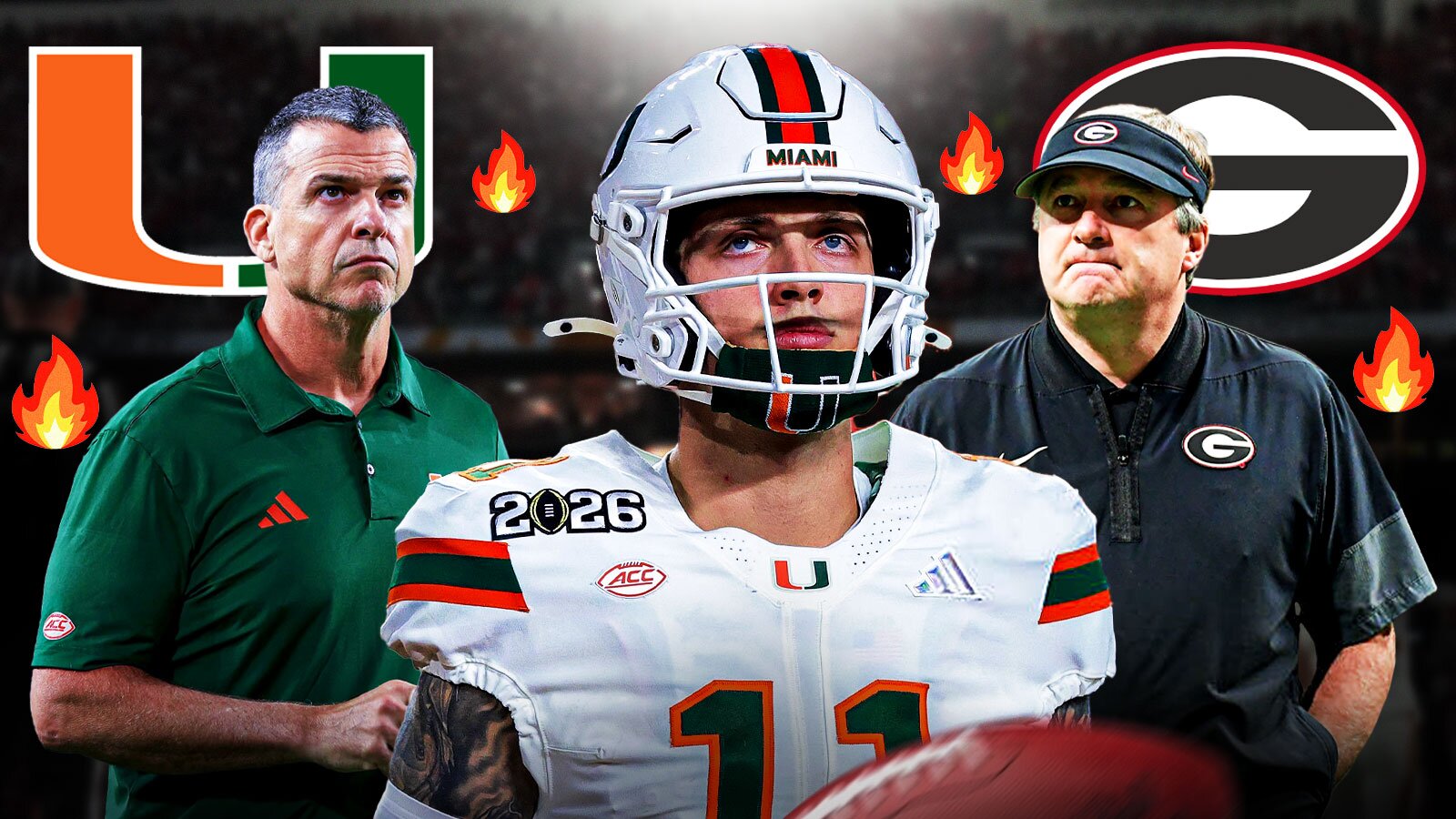When Caleb Williams joined the Heisman club last season, there was already talk that he would be the No. 1 pick in the 2024 NFL Draft, with most in the league already wishing he could have come out in 2023. But that was last season, and the USC football quarterback didn't become only the second player to ever win the Heisman Trophy twice like most had expected. In fact, he wasn't even invited to New York this year, not even on the 10-player ballot. Does that foreshadow him dropping to the No. 2 pick in the draft now?
Caleb Williams had to live up to his 2022 season in 2023
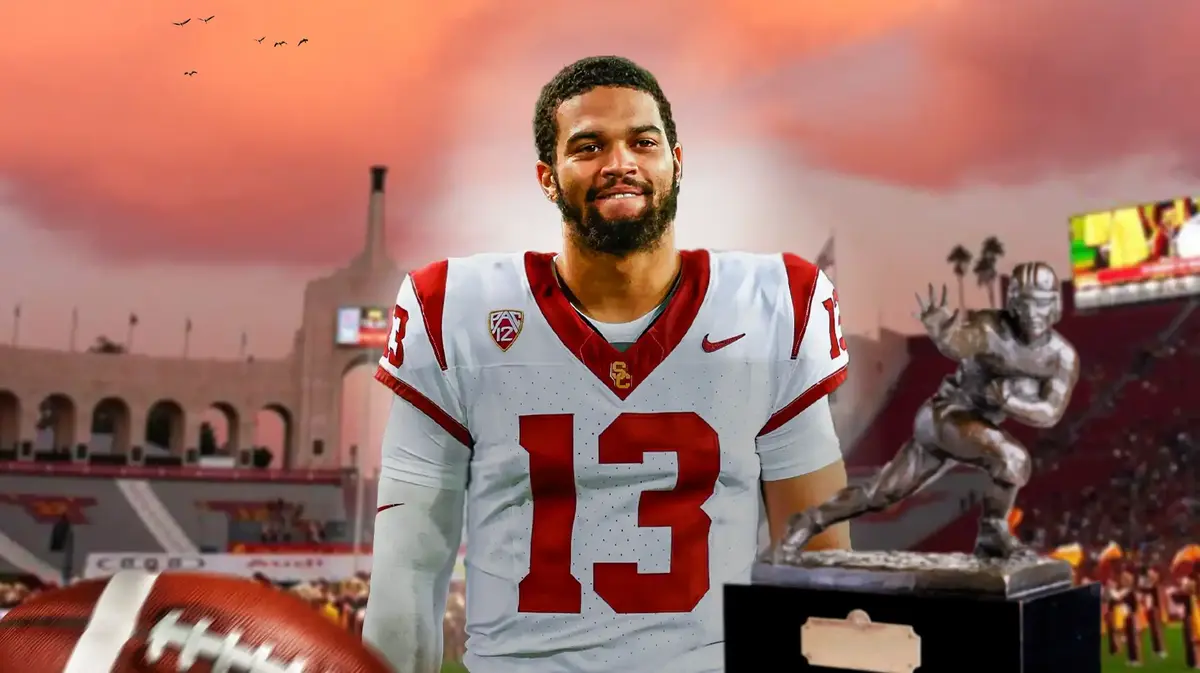
Helping lead the Trojans football program, along with new head coach Lincoln Riley, to their first 11-win season since 2017, Williams was the talk of all college football last year. He revived what was beginning to become a dormant USC football program and brought it back into national relevancy. If not for losing to Utah in the Pac-12 Championship Game last season, USC probably makes their first appearance in the College Football Playoff.
Williams dominated headlines because he dominated the field with his dynamic abilities to escape the pocket and make never-before-seen throws. His numbers were staggering, warranting the awarding of the Heisman, even if Utah was the thorn to him and USC's side twice that season, keeping them from a playoff berth.
Transferring in from Oklahoma as a true sophomore, in 14 games last season, Williams completed 333 passes at 9.1 yards per pass, for a 66.6 completion percentage, threw 42 touchdowns and only five interceptions, while rushing for another 382 yards and 10 touchdowns. Those kind of numbers were good enough to give him 544 first-place Heisman votes last year, which was 356 better than second-place vote-getter Max Duggan, the former TCU quarterback, according to ESPN.
Caleb Williams had Heisman eligible stats this season
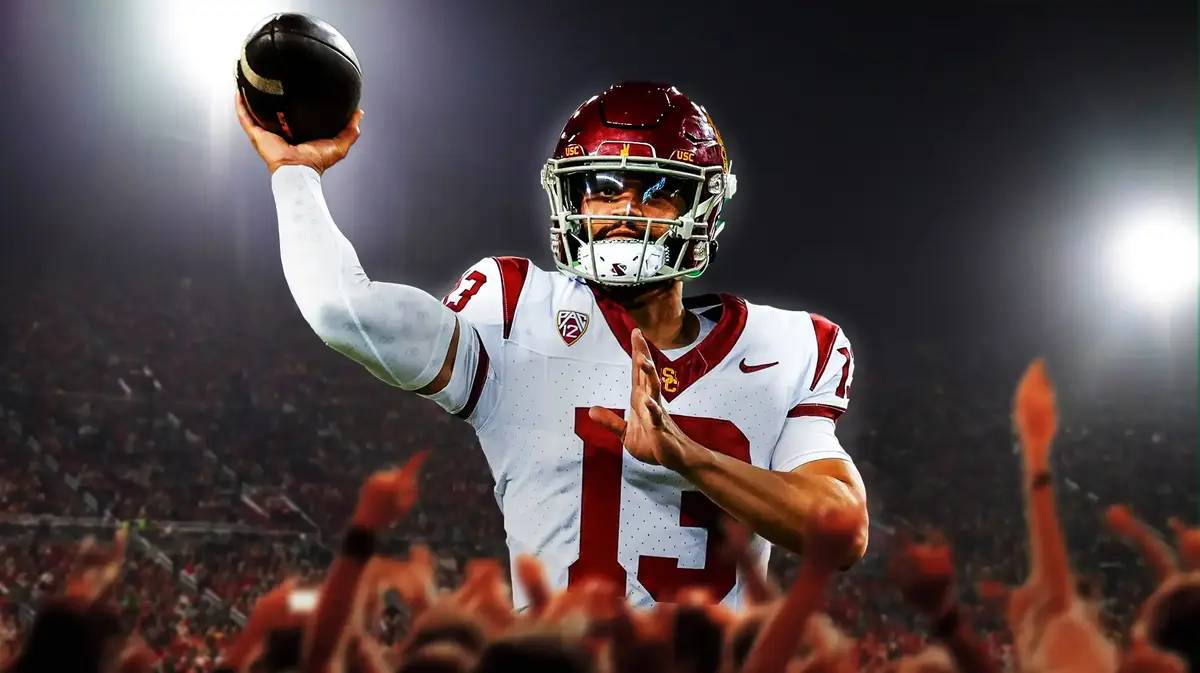
To replicate such an incredible statistical year is near impossible, as we clearly saw. In 2023, Williams will have two fewer games played, due to the Trojans being unable to make the Pac-12 title game and that he will be forgoing the Holiday Bowl against Louisville on Dec. 27. His numbers definitely took a dip, but only by the standard he set for himself from the year prior, although he actually got better in some areas.
He completed 288 passes (67 less) at 9.4 yards per pass (0.3 better), for a 68.8 completion percentage (2% better), threw 30 touchdowns (12 less) to five interceptions (the same), while rushing for 142 yards (240 less) and 11 touchdowns (1 better). In comparison, those numbers are really close to those of Michael Penix Jr., who took second in the Heisman voting.
Penix completed 307 passes at 9.1 yards per pass for a 65.9 completion percentage, throwing 33 touchdowns and nine interceptions, with -3 rushing yards and three more scores. Yet, here is Penix with all the love and being hyped as a high draft pick, while others are now questioning if Williams should still be No. 1. Granted, that's understandable as overall results matter, and Penix has led the Washington Huskies to the College Football Playoff, something that Williams failed to do in his two seasons at USC.
But no one should be writing off Williams that easily. Although the USC football team fell way short of expectations this season, going 7-5 and finishing unranked after originally coming in as a preseason favorite to make the playoff, ranked No. 6 in the country, that doesn't diminish what their quarterback did, and by no means drop his No. 1 draft position. In fact, Williams was the sole reason that the Trojans were able to stay in games.
Caleb Williams needed a season like this year
USC had one of the worst defenses in the entire country. They were ranked 119th in total defense, 105th in 3rd down conversion percentage, and 121st in red zone defense, just to name a few. This ultimately led to Riley firing defensive coordinator Alex Grinch after the Washington game, and the Trojans gave up 101 total points over a two-game stretch.
In their five losses this season, USC lost only two games by more than two scores. That's because they had, up until the couple of games of the season, a top-5 total offense. Currently, they rank 11th in the country. And make no mistake about it — that's all because of Williams.
When the defense couldn't stop so much as a nose bleed all season, it was left up to Williams to rally the team and put points on the board, all the while usually having to evade multiple defenders because of a shoddy offensive line. Riley, whether by choice, consequences, or both, put entirely too much emphasis on Williams. With that said, this was perhaps the best resume of a season that the USC quarterback could have had before he enters the NFL, further elevating him as the No. 1 pick.
As quarterback-dominant as the NFL is, the position requires not only great skill but also great dependence. In retrospect, this demanding season served as a crucible for Williams. It provided a platform to showcase not only his technical proficiency as a quarterback but also his leadership, adaptability, and capacity to perform under adversity—qualities that are highly coveted at the professional level. Despite the challenges faced, Williams' performance underscored his potential as an NFL-caliber quarterback, making this season an inadvertent yet invaluable stepping stone in his journey to the next level.

